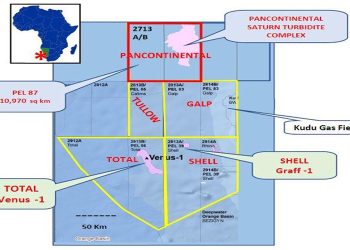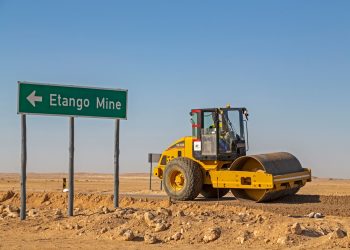
By John Steytler
Economic collaboration between Namibia and Botswana has the potential to reshape the regional energy landscape. Recently, President Dr. Netumbo Nandi-Ndaitwah of Namibia and President Duma Boko of Botswana met to discuss critical economic initiatives.
One of the key topics on their agenda was the possibility of a joint oil refinery, a move that could bring significant benefits to both nations.
With Namibia anticipating substantial offshore oil discoveries, refining this resource domestically presents an opportunity to enhance revenue streams while reducing reliance on imported petroleum.
Instead of merely exporting raw crude, a refinery would allow Namibia and Botswana to control upstream and downstream aspects of the oil industry. Shared investment in such a facility could make economic sense, provided its feasibility is carefully examined.
As soon as this idea was launched, I received calls and people asking my opinion on the matter. As the former economic advisor for President Hage Geingob and as an economist, I am sometimes sought out to give advice. I believe in offering well-thought-out advice, not just a throw-away comment.
Considering the creation, the investment, and the sheer ambition of building an oil refinery requires serious assessment on all fronts, including economic, social, and environmental.
This is where specialists come in and advise on the economic and financial realities of building an oil refinery in Namibia and Botswana.
At present, both Namibia and Botswana rely on imported refined petroleum, leaving us vulnerable to global price fluctuations and supply chain disruptions.
A domestic refinery could stabilize costs and ensure energy security while reducing dependence on external suppliers. However, the primary question remains: does it make sense to establish such a facility in this region?
If Namibia and Botswana embrace this audacious and ambitious project, it could generate thousands of direct and indirect jobs across various sectors and at all levels.
Both countries battle high unemployment, this initiative could also boost local peripheral and supplier industries, including petrochemicals and manufacturing, further strengthening the economic landscape.
However, do these positives weigh up against the large capital investment required initially to make a refinery operational here?
Infrastructure improvements would be necessary. Expanding transport networks, ports, and pipelines would create a ripple effect, attracting further investment into Namibia and Botswana.
Such developments could position both nations as strategic energy players within Southern Africa.
We cannot just look through rose-tinted glasses at the idea of building an oil refinery, it requires a multi-billion-dollar investment, covering construction, technology, and operational costs.
Financing such a large-scale project would necessitate government support, private sector partnerships, and potentially external funding, all of which could present financial risks.
A feasibility study, which consists of a team of specialists and dare I say, realists is essential to make the well-informed decision to take the concept of an oil refinery to the next phase.
Oil refining has environmental implications, including carbon emissions, water contamination, and land degradation.
Namibia and Botswana would need to establish stringent regulatory frameworks to mitigate environmental impacts, which could increase operational costs. Especially as both nations rely on tourism and are world-renowned for safeguarding their precious environment and flora and fauna.
The success of a regional refinery depends on stable demand for refined petroleum products. Competing with existing refineries in South Africa and global suppliers might prove challenging, particularly if alternative energy sources gain traction.
Although with the potential Namibian oil fields yielding oil for many years into the future, we could be competitive.
A Namibia-Botswana partnership in oil refining presents substantial economic benefits, including job creation, infrastructure advancement, and increased trade opportunities.
However, between conceptualizing an idea and achieving long-term success lies a series of obstacles that must be overcome. Only through careful economic assessments, environmental planning, and strategic execution can this ambitious project truly benefit the region and be a fine idea.
*Dr. John Steytler is an economist







